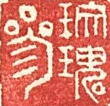Back to the idea of what makes a system of medicine effective. Looking at one’s paradigm for perceiving imbalance, does one look to the past, present or future? Blood tests, MRIs, CT scans, etc. are only a snapshot of the present moment. How often does a patient go to the doctor for regular mammograms only to find out on one visit that she now has breast cancer. Did the breast cancer develop between the yearly mammograms? Or has it been growing (mostly likely for years or decades) without being detectable by western diagnostic tests? The latter, obviously. If one only looks to the present, there can never be a true understanding of the nature of disease.
Chinese medicine’s inquiry starts in the present, looks to the past for understanding, and looks to the future in order to predict where the illness may go (based upon the past and present). One of the major examples commonly seen in practice is the issue of traumas. Traumas have profound impact on us emotionally, physically and spiritually. From traumas occurring at birth (placenta previa and insecurity of the pregnancy, forceps, breech births, cord being wrapped around one’s neck depriving oxygen) to sudden shocks early in one’s life (major accidents, death of a parent) to abuse (physical, sexual), each has tremendous repercussions on our physical and emotional well-being. An interesting case study in Dr. Hammer's trauma and shock article at this link.
The effects of traumas on our heart, nervous and circulatory systems and kidneys can set the stage for multiple imbalances as the years proceed. Being able to spot the signs of trauma (thorough history, visual inspection of the complexion, pulse diagnosis) one can more effectively and holistically treat the current complaints as well as the enduring root causes of these and future illnesses.
Monday, January 29, 2007
Paradigm (cont'd)
Subscribe to:
Post Comments (Atom)





No comments:
Post a Comment